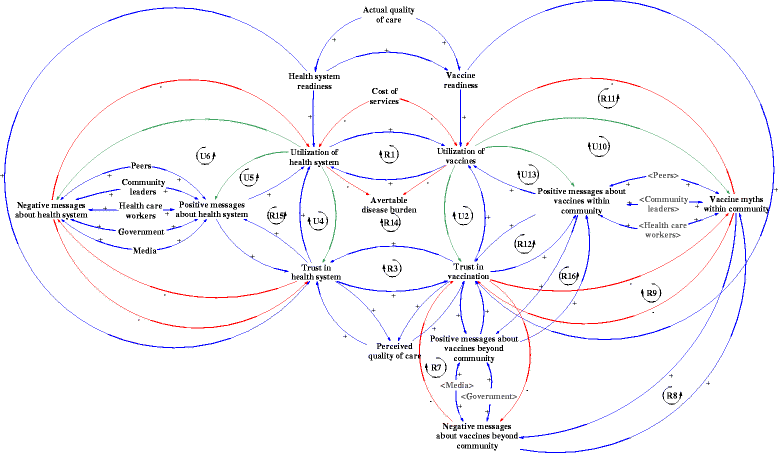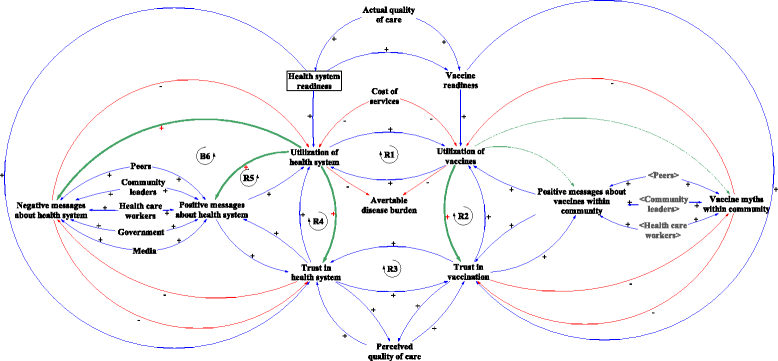Exploring pathways for building trust in vaccination and strengthening health system resilience
- PMID: 28185595
- PMCID: PMC5123384
- DOI: 10.1186/s12913-016-1867-7
Exploring pathways for building trust in vaccination and strengthening health system resilience
Abstract
Background: Trust is critical to generate and maintain demand for vaccines in low and middle income countries. However, there is little documentation on how health system insufficiencies affect trust in vaccination and the process of re-building trust once it has been compromised. We reflect on how disruptions to immunizations systems can affect trust in vaccination and can compromise vaccine utilization. We then explore key pathways for overcoming system vulnerabilities in order to restore trust, to strengthen the resilience of health systems and communities, and to promote vaccine utilization.
Methods: Utilizing secondary data and a review of the literature, we developed a causal loop diagram (CLD) to map the determinants of building trust in immunizations. Using the CLD, we devised three scenarios to illustrate common vulnerabilities that compromise trust and pathways to strengthen trust and utilization of vaccines, specifically looking at weak health systems, harmful communication channels, and role of social capital. Spill-over effects, interactions and other dynamics in the CLD were then examined to assess leverage points to counter these vulnerabilities.
Results: Trust in vaccination arises from the interactions among experiences with the health system, the various forms of communication and social capital - both external and internal to communities. When experiencing system-wide shocks such as the case in Ebola-affected countries, distrust is reinforced by feedback between the health and immunization systems where distrust often lingers even after systems are restored and spills over beyond vaccination in the broader health system. Vaccine myths or anti-vaccine movements reinforce distrust. Social capital - the collective value of social networks of community members - plays a central role in increasing levels of trust.
Conclusions: Trust is important, yet underexplored, in the context of vaccine utilization. Using a CLD to illustrate various scenarios helped to explore how common health and vaccine vulnerabilities can reinforce and spill over distrust through vicious, reinforcing feedback. Restoring trust requires a careful balance between eliminating vulnerabilities and strengthening social capital and interactions among communication channels.
Figures




References
-
- World Health Organization . Everybody’s business: strengthening health systems to improve health outcomes - WHO’s framework for action. Geneva: World Health Organization; 2007.
MeSH terms
Substances
LinkOut - more resources
Full Text Sources
Other Literature Sources
Medical

